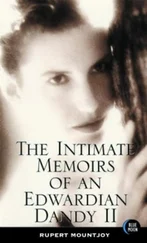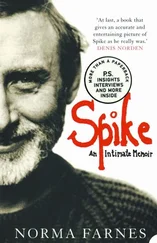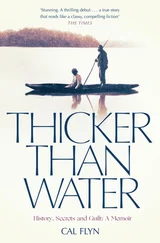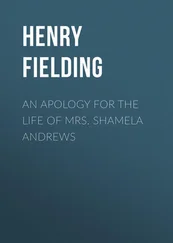Men dressed in the traditional djellaba and turban politely applauded as we drove to the Bahia Palace, inside the thirty-foot-high walls of the ancient city. Mrs. Kennedy loved it.
By sheer coincidence, Mrs. Kennedy’s visit occurred during the reverent celebration of King Hassan’s firstborn son, Prince Mohammed, who had been born on August 21. It was a Moroccan and Muslim custom to celebrate when the baby was forty days old.
I was worried about how this would affect Mrs. Kennedy, since Patrick, had he lived, would have been nearly the same age. She handled the situation with grace and dignity. She said to me at one point, “Isn’t it wonderful they are able to celebrate the life and hope for the future of their new son? The president and I had similar hopes and dreams for Patrick.”
There was also a festival in which hundreds of Berber tribesmen had traveled to the city with their horses, guns, and tents. The event took place on a field about two football fields in length. Mrs. Kennedy, Lee, Agent Landis, and I were seated under a tent on the sidelines as the tribesmen began dancing and singing to the rhythmic sounds of their drums. Mrs. Kennedy loved this kind of stuff.
Agent Giannoules had warned us that there would be gunfire as the tribesmen charged each other on horseback, demonstrating their horsemanship and skill as fighters. When I explained this to Mrs. Kennedy, she said, “Oh, that sounds so exciting!”
She hadn’t brought a camera, but Paul Landis had one that he had been taking pictures with all week.
She turned to Mr. Landis and said, “Mr. Landis, why don’t you go down on the field and take some pictures?”
“That’s a great idea, Mrs. Kennedy,” he said.
He got up and walked down to the arena. The Berber tribesmen, all dressed in their traditional clothing, then began to line up on horseback at one end of the field.
All of a sudden, without warning, a gun fired into the air. Crack! The riders charged, creating a cloud of dust, amid the whoops and hollers and the sound of the horses’ hooves trampling down the field, right toward Paul.
“Oh no!” Mrs. Kennedy exclaimed in horror as she threw her hands to her face.
When the dust cleared, there was Paul, his face white as a sheet, yet still snapping away with his camera, just inches from the tramping horsemen.
Mrs. Kennedy and I burst out laughing. We could hardly contain ourselves at the sight of Paul, visibly trembling, as the tribesmen circled around in mock battle.
When Paul was able to make his way back to where we were seated, I couldn’t help myself.
“Paul,” I said, “if you need to go to your room and change your shorts, feel free to do so.”
“Oh, Mr. Hill! Poor Mr. Landis!” Mrs. Kennedy laughed and laughed and laughed. It was so wonderful to hear that laugh again.
It was music to my ears, and I knew everything was going to be okay.
THE NEXT DAY we left Marrakech on King Hassan’s private plane and headed for Paris. On the Pan Am flight back to New York, Mrs. Kennedy couldn’t stop talking about the trip. She was in great spirits.
“You know, Mr. Hill,” she said, “the president is going on a trip to Texas next month, and he wants me to join him. I had told him I didn’t want to go—I didn’t think I was ready. But now I feel so much better and I really want to help him as much as I can.
“Maybe I will go after all.”
22
Preparing for Texas
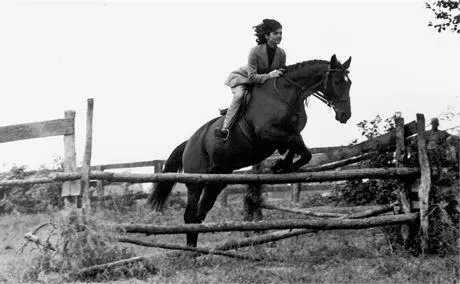
Mrs. Kennedy rides Sardar in Middleburg
As soon as we returned from Greece and Morocco, Mrs. Kennedy was eager to spend as much time as possible in Atoka. Beginning the weekend of October 25, 1963, it became the habit that every Friday, after Caroline’s school let out at 1:00 P.M., Mrs. Kennedy, the children, Maud Shaw, and I would helicopter directly to the Atoka property, with Paul Landis and the children’s agents driving the cars, filled with suitcases and things Mrs. Kennedy had decided to bring to the new house.
The sprawling ranch-style house at Atoka that Mrs. Kennedy had designed and decorated sat on a rise with tremendous views of the countryside. It was very secluded, with not another home in sight, and had acres and acres of rolling meadows for Mrs. Kennedy to ride her beloved horses. Sardar and Macaroni had been transported there, along with a new pony named Leprechaun—a gift for John from the people of Ireland. Beautiful stables had been built to accommodate the horses—and the Secret Service agents. An office with brand-new equipment had been designed into the stable building as the Secret Service Command Post, which really worked out well, but also served as a subtle reminder of where we stood in the pecking order.
That first Friday afternoon, the first thing Mrs. Kennedy wanted to do was ride Sardar. It was a glorious autumn day, and from the vantage point at the back of the house, I could see the entire thirty-nine-acre property. As I watched her gallop at full pace, the wind blowing in her hair, her body moving as one with her beloved Sardar, I thought, This is what she needed more than anything. The cruise on the Christina was magnificent, no doubt about it, but there was nothing that compared to the joy on her face when she was riding.
When she finished, I was waiting by the stables with the groom they had hired to care for the horses. After dismounting, Mrs. Kennedy handed the reins to the groom and said, “Mr. Hill, come walk with me to the house.”
I always thought she looked so beautiful in her riding clothes—natural, no makeup, and after an exhilarating ride, her face was flushed from the exercise. But despite how much she seemed to have enjoyed being back on Sardar, I could tell something was wrong.
As we started walking, she said, “You know I told you I was going to go with the president to Texas . . .”
“Yes . . .” I had a feeling I knew what this was about.
“Well,” she said, “I’m having second thoughts, after this incident with Adlai Stevenson.”
Adlai Stevenson, the ambassador to the United Nations, was one of Mrs. Kennedy’s friends. The day before, he had been heckled while giving a speech on world peace in Dallas. Then, when he emerged from the auditorium, a group of anti–United Nations protesters attacked him with placards, and someone reportedly spat on him. The police had to force back the protesters, and by all accounts, it was an ugly scene.
“Yes, I did hear about that,” I answered.
“I had dinner with the Roosevelts last night, and they tried to talk me out of going—especially to Dallas. What do you think?”
She had been so excited about the trip just a couple of days earlier, and now it seemed she was rethinking everything. I wondered whether it really had to do with the Stevenson incident.
“Are you sure you’re not just trying to get out of going to Johnson’s ranch?” I asked with a smile.
The details of the trip were still being worked out by the political staff, but the word was that Vice President Johnson and his wife had extended an invitation for an overnight visit at their ranch near Austin.
She looked at me and laughed.
“Well, that is rather frightening in and of itself . . . but really,” she said, turning serious, “I would like to know your opinion. Do you think the climate in Dallas is so . . . so hostile to the president that the people could mistreat us like they did Adlai?”
“Anything’s possible, Mrs. Kennedy,” I said. “But as far as I know, there are no more threats in Dallas or Houston or anywhere else in Texas than there would be in any other part of the South right now.”
Читать дальше



